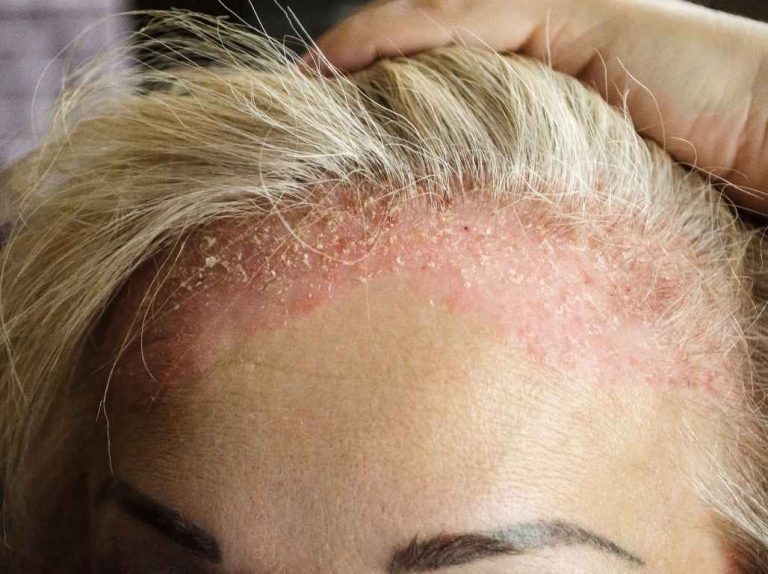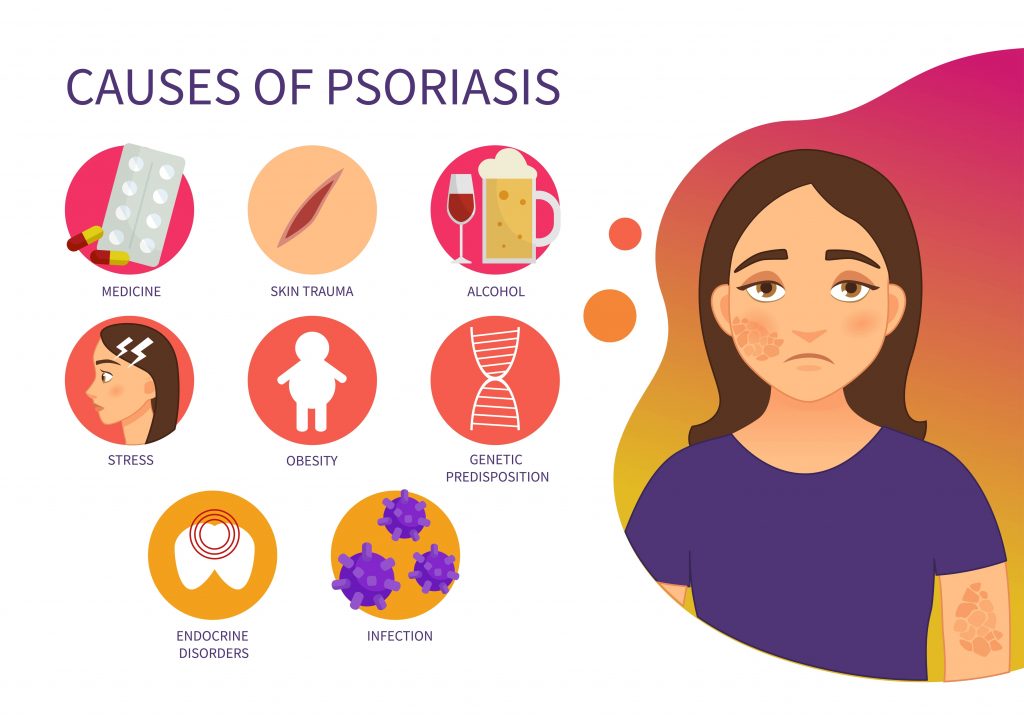You might wonder why psoriasis affects self-esteem. It’s just a rash, right? Well, no. Psoriasis is a word that is often loosely used to describe something as inconsequential as a diaper rash on a baby, but it can be much worse.
What Is Psoriasis
The definition of Psoriasis is an inflammatory, autoimmune disease of the skin that often occurs on visible areas of the body. The autoimmune response in psoriasis results in the rapid overproduction of skin cells, causing thick, red, scaly, patches on the skin’s surface. Psoriasis plaques, as they’re called, can be itchy and unsightly.
Psoriasis affects self-esteem because of its effect on your appearance. The disease has been shown to lead to worsened self confidence and body image. Especially if the psoriasis is severe or particularly visible (such as psoriasis on the face), it can be a source of embarrassment or self-consciousness. One survey found that 73 percent of respondents with severe psoriasis, and nearly half of those with moderate psoriasis, described their self-confidence as low.
Psoriasis affects self-esteem most in younger patients
While self-esteem and body image are subjective perceptions, external factors such as societal standards and other people’s input can influence both. The earlier survey found that approximately half of participants thought that others found their psoriasis disgusting, and nearly half had been made fun of specifically for their skin condition.
Respondents between the ages 18 years and 24 years reported the most severe psychosocial impacts of living with psoriasis. In young adulthood, people tend to develop into independent adults and begin exploring romantic relationships — life events that play a role in self perception and confidence and that may be disrupted by psoriasis.
The type of psoriasis and where it occurs on the body can also influence how a person living with psoriasis feels about themself. For instance, inverse psoriasis commonly develops in the skin folds of the armpits, groin, and genitals. Low self-esteem with inverse psoriasis can have a significant negative impact on intimacy and relationships. The emotional issues that psoriasis symptoms can sometimes bring can also make it harder to engage socially with family, friends, and romantic partners. As many as 75 percent of people with psoriasis avoid being in public when they experience psoriasis flares up.
Treatment and understanding change how psoriasis affects self-esteem
Get the treatment you need to improve your quality of life. Because of the link between the severity of psoriatic disease and your overall quality of life, you can improve your wellness and mental health when you manage your psoriasis. If you’re struggling with flares, be sure to keep in touch with your doctor about your treatment plan. Your doctor may want to change your medication and will certainly be open to discussing how psoriasis affects your everyday life, including how you view yourself and your body. Adjusting your treatment and getting referrals to other resources could dramatically improve your confidence and body image.
Helping others understand the affects of psoriasis may also help you feel more socially accepted by decreasing the stigma. Talking to a trusted friend or family member be empowering and validating.
Getting comfortable with yourself
Loving the skin you’re in, and loving yourself are the cornerstones of mental health. Psoriasis is one small part of you. Psoriasis doesn’t define who you are. You’re better off if you accept yourself and the skin you’re in, whether or not your psoriasis symptoms are flaring up. Therapy or other support may help. Seeing a mental health provider can help you build up your confidence and self-esteem. Peer-to-peer networks and communities are also an invaluable support if you’re struggling with self image because of your psoriasis. Millions of other people have gone through and understand what you’re going through. You can find support either in person or through a virtual community like MyPsoriasisTeam.
By Nyaka Mwanza






















